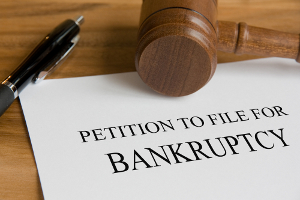 Children affect a Chapter 13 bankruptcy case in a couple of different ways. Children are expensive and as a result they affect a debtor’s disposable income. Disposable income is a term used in bankruptcy to describe a debtor’s ability to pay his unsecured creditors. Unsecured creditors include credit cards, medical bills, pay day loans, and other creditors that loan money without requiring collateral for their loan. Unsecured creditors don’t always receive payments in Chapter 13 cases. In fact, many Chapter 13 plans are filed that pay little or nothing to unsecured creditors.
Children affect a Chapter 13 bankruptcy case in a couple of different ways. Children are expensive and as a result they affect a debtor’s disposable income. Disposable income is a term used in bankruptcy to describe a debtor’s ability to pay his unsecured creditors. Unsecured creditors include credit cards, medical bills, pay day loans, and other creditors that loan money without requiring collateral for their loan. Unsecured creditors don’t always receive payments in Chapter 13 cases. In fact, many Chapter 13 plans are filed that pay little or nothing to unsecured creditors.
Disposable income is based upon the debtor’s income and expenses. There are a lot of expenses associated with children. Day care, medical insurance, food, recreation, clothing, all add up and the end result is that a debtor with children will have less disposable income than a debtor with the same monthly income but no children.
When a debtor has a child while in a bankruptcy case, the first thing they should do is contact their bankruptcy attorney. Changes in financial situation can also affect a bankruptcy case. Debtors may be able to convert their case to Chapter 7 and receive a discharge with no more payments to the trustee. Even if the debtor cannot convert their case or do not want to do so because they have nonexempt property, they may be able to reduce their plan payment through a Chapter 13 plan modification.
A modification is basically a new plan filed with the court. It is set for a hearing and creditors are given an opportunity to object. Debtors may be able to modify their plan to reduce the amount being paid to their unsecured creditors. One requirement of a plan modification is that the debtor show some change in circumstance. Having a child is definitely a change in circumstance that can affect a debtors disposable income and qualify them for a plan modification.